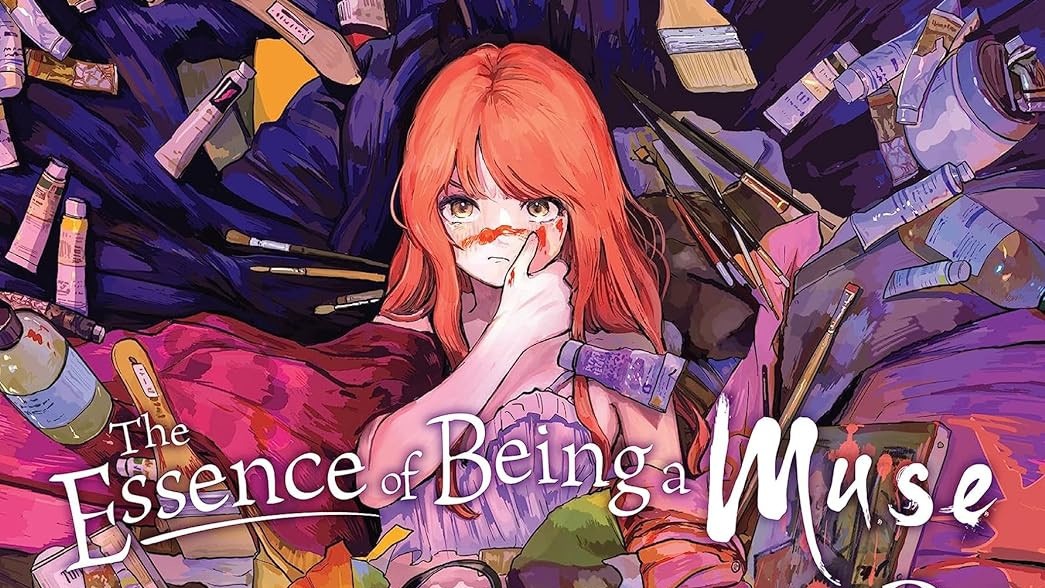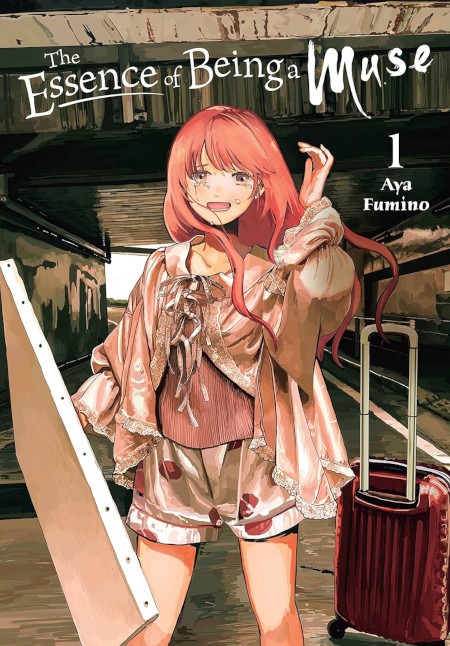
“I’m just an ordinary person,” Miyuu Seno says on the first page of The Essence of Being a Muse. “In fact…I’m painfully aware of that.” Manga protagonists have a habit of introducing themselves as regular guys or gals, usually as a prelude to adventures that will prove how far from ordinary they are. But Miyuu means it. Having defied her controlling mother’s wishes by applying to art school, she’s left demoralized and drifting when her portfolio is rejected. It doesn’t seem like she’s destined to be the heroine of her own story.
Reluctantly, Miyuu goes along with her mother’s pragmatic plan for her life: working at an office until she can marry a man with a white-collar career. At a mixer, she meets handsome accountant Nabeshima, who certainly looks like husband material, but his cruel cynicism leaves her more depressed than ever. Maybe her days are better spent sketching on the sidewalk, where she can meet people like Ryuen, a cute goofball with a wardrobe of aloha shirts and a relentlessly sunny demeanor: “People who make art are so cool! I mean, you’re super good at this, Miyuu-chan!” Beats going home to another grim dinner with Mom.
 Lots of manga focus on being the best. The Essence of Being a Muse is an unusually affecting drama about realizing your worth whether or not you come out on top. The perpetually teary-eyed Miyuu is the character most obviously in need of an ego boost, but as the manga continues it becomes clear that Nabeshima bullies her out of self-hatred, trying to drag her down to his own nihilistic level, and her mother is projecting her own disappointments on her daughter.
Lots of manga focus on being the best. The Essence of Being a Muse is an unusually affecting drama about realizing your worth whether or not you come out on top. The perpetually teary-eyed Miyuu is the character most obviously in need of an ego boost, but as the manga continues it becomes clear that Nabeshima bullies her out of self-hatred, trying to drag her down to his own nihilistic level, and her mother is projecting her own disappointments on her daughter.
The story isn’t entirely free of cliché. Miyuu is the stereotypical chick-lit heroine who doesn’t know she’s beautiful and charming even though attractive men keep falling into her orbit, and once she starts to take control of her life, some of her problems resolve themselves a little too conveniently. But it’s a pleasure to follow her journey from dashed hopes to acceptance that, whether or not her paintings wow an admissions committee, she can create art. The large blank canvas she totes around the city serves as a metaphor for her creative soul—often damaged, but not yet destroyed.
A manga about an artist needs good art, and Aya Fumino’s artwork is softly appealing, especially her winsome, emotive drawings of Miyuu. When Miyuu suffers from bouts of depression, the art changes from fine-lined shojo prettiness to heavy, rough inks drenched in screentone. The Essence of Being a Muse is an empathetic reminder that you don’t need to be an extraordinary person to do extraordinary things.
Publisher: Yen Press
Story and Art: Aya Fumino
Rating: Teen

